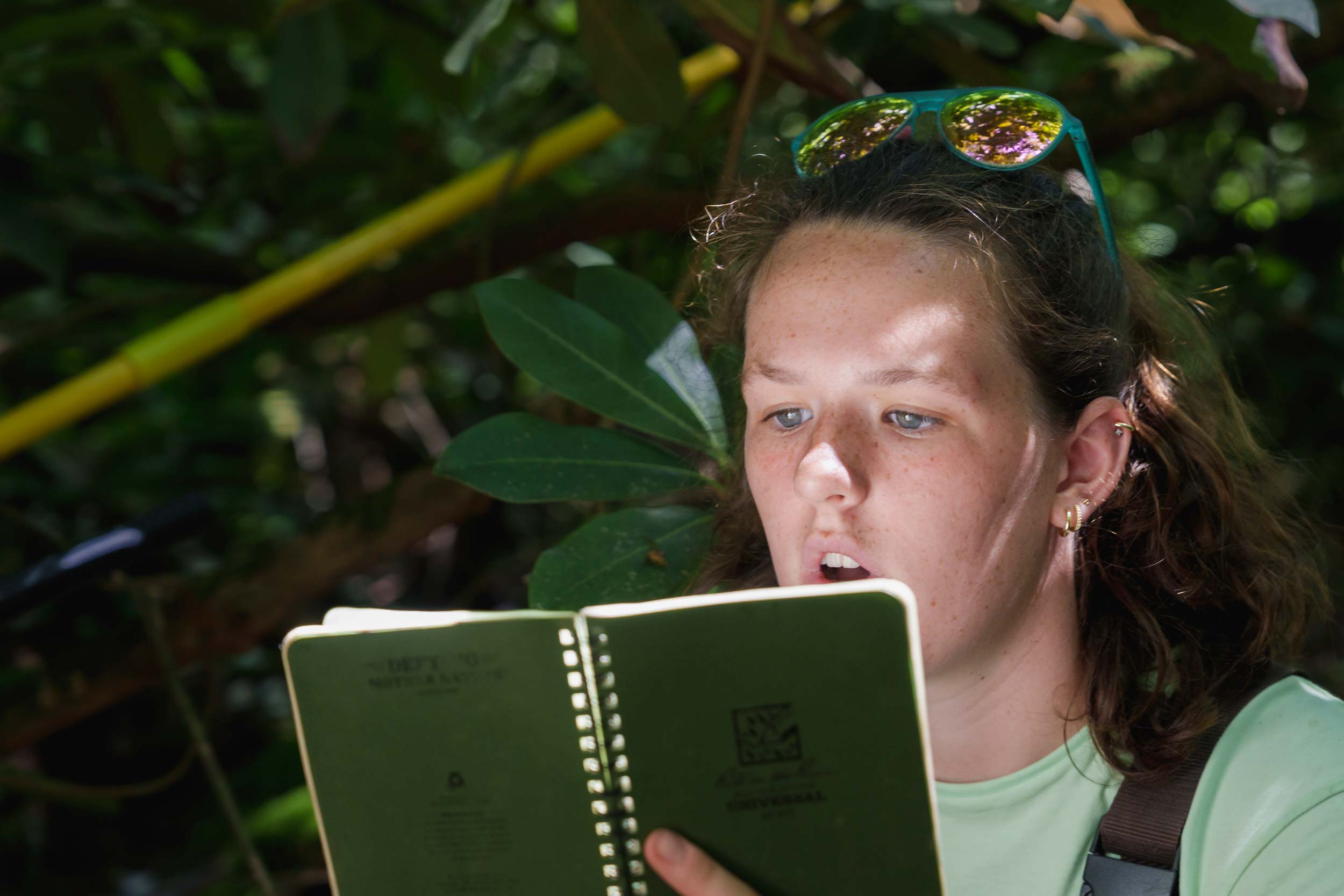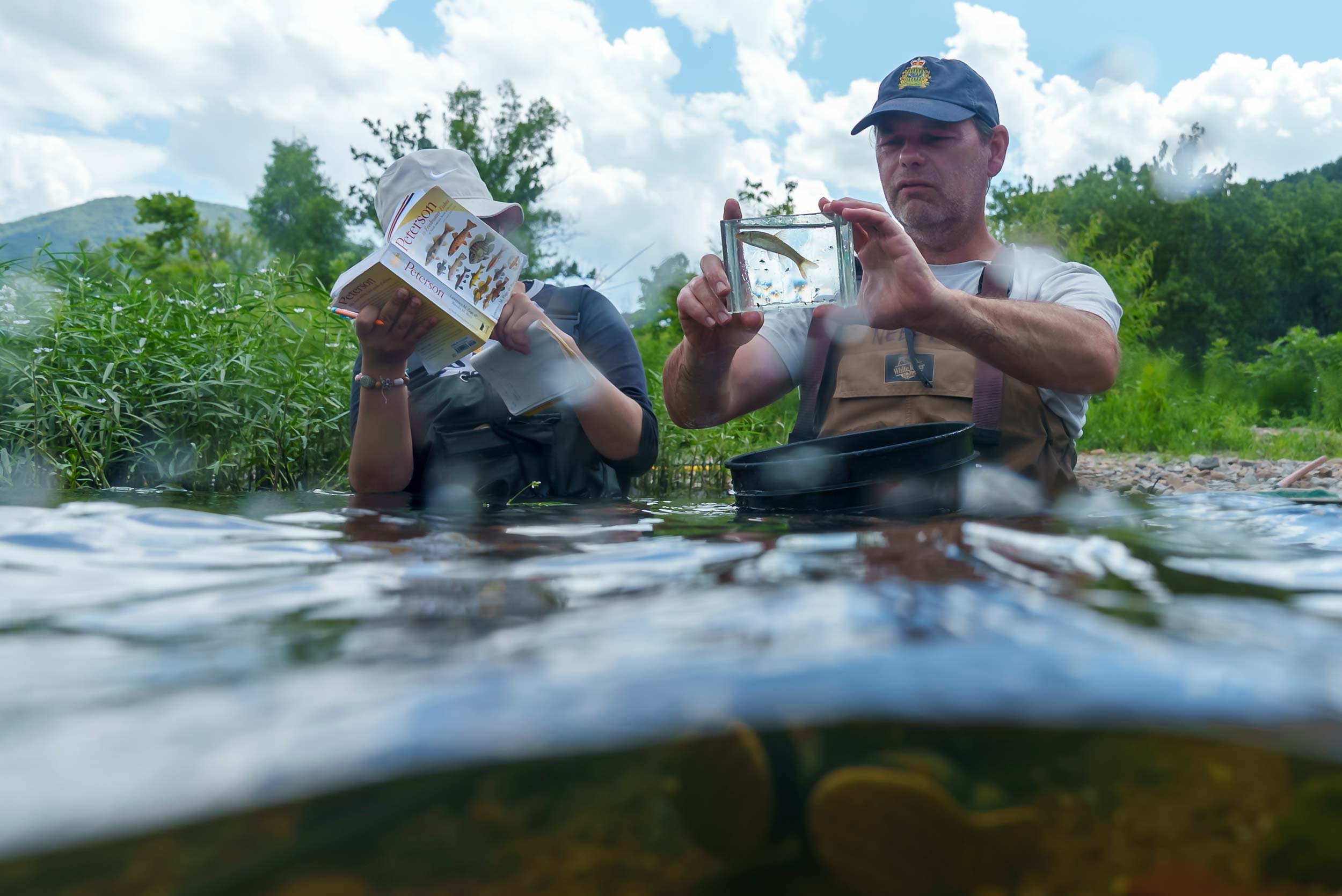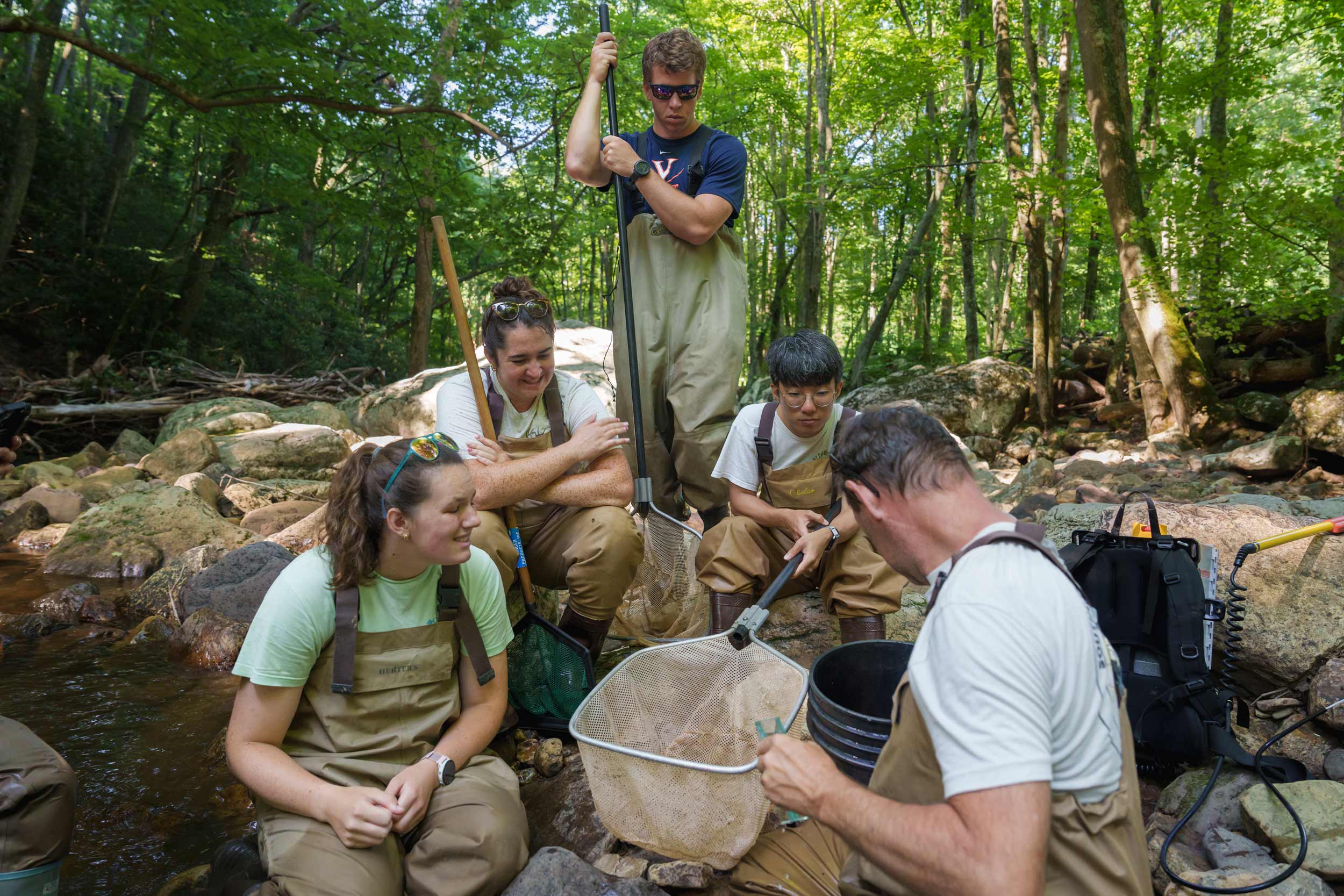SPEAKER 1:
Mountain Lake is really special. They do a field herpetology class. There is a Biology of Insects class. My Biology of Fishes class is a field-based class, where students are immersed in fish biology pretty much every day.
SPEAKER 2:
Dave just takes us around everywhere in Virginia, from near Tennessee, all the way to the coastal plain up in Norfolk. We just go sample fish. There’s things we‘ve seen before. Dave gives them to us, and then we try to identify them. If not, Dave will go through and teach us all we need to know about it.
SPEAKER 1:
It‘s easy to teach a conventional ichthyology class based on preserved specimens or slides. But kind of weird concepts make more sense when you‘re actually standing waist-deep in a stream, holding the fish that you‘re trying to talk about.
SPEAKER 3:
At the beginning of the class, I thought all of these kind of looked the same. It‘s really become a challenge to take the time and look at the details.
SPEAKER 2:
That‘s been the most interesting part, is just seeing all these new fish and seeing that, hey, even in Virginia, we have all these crazy, beautiful fish.
SPEAKER 1:
I mean, I‘m obsessed with fish. And I hope some of that comes through to my students. And I don‘t expect that all of them are going to become an ichthyologist. But it‘s nice that they have an appreciation for the diversity of fishes and, more importantly maybe, how important clean water, clean rivers, clean environments that support these really diverse fish communities are. If a river is a good habitat for fish, it‘s a good habitat for us. It‘s a source of clean drinking water. It‘s just a better place for us to live, too.
[MUSIC PLAYING]



















